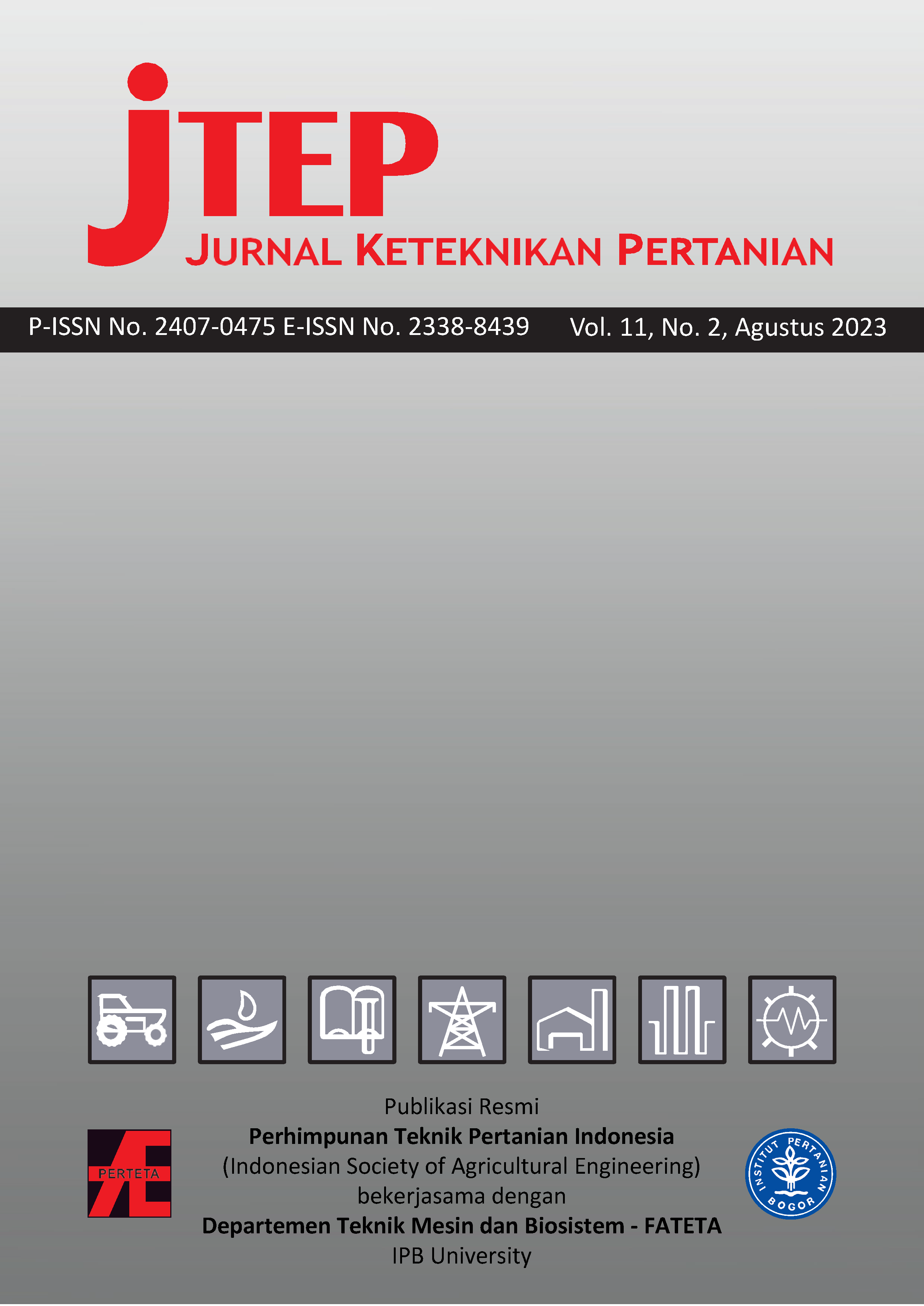Estimasi Risiko Migrasi Bisfenol A (BPA) Dari Kemasan Logam Pangan Olahan Di Indonesia
Abstract
Metal is one type of food packaging that is widely used. To prevent corrosion, metals are usually coated with an epoxy resin coating such as bisphenol A (BPA). BPA consumption can affect the endocrine system and cause damage to various organs. This study aims to determine the BPA migration in sardines and corned beef cans and its exposure to Indonesian consumers. The samples used were empty cans for sardines and corned beef, 12 each, and then analyzed using HPLC-UV Vis. The results showed that the migration concentration of BPA in sardines cans (using a 20% ethanol simulant) ranged from 0.005 – 0.05 mg/kg, while in corned beef cans (using 10% ethanol simulants) is 0.005 mg/kg. The highest average estimated daily BPA migration exposure of canned sardines consumption is at the age of 24-59 months (0.0546 µg/kg BW), while the highest estimated daily migration of BPA exposure of canned corned beef consumption is at the age of 5-12 years (0.0066 µg/kg BW). It also shows P95 risk value for exposure to BPA migration from consumption of canned sardines in all age groups is 2.3883%, while canned corned beef in all age groups is 0.3846%. These do not exceed the temporarily tolerable daily intake (tTDI) which indicates the exposure to migration of BPA from cans of sardines and corned beef due to consumption of sardines and corned beef does not pose a risk of danger to human health in Indonesia.
Authors

This work is licensed under a Creative Commons Attribution-ShareAlike 4.0 International License.
Authors submitting manuscripts should understand and agree that copyright of manuscripts of the article shall be assigned/transferred to Jurnal Keteknikan Pertanian. This work is licensed under a Creative Commons Attribution-ShareAlike 4.0 International License (CC BY-SA) where Authors and Readers can copy and redistribute the material in any medium or format, as well as remix, transform, and build upon the material for any purpose, but they must give appropriate credit (cite to the article or content), provide a link to the license, and indicate if changes were made. If you remix, transform, or build upon the material, you must distribute your contributions under the same license as the original.

